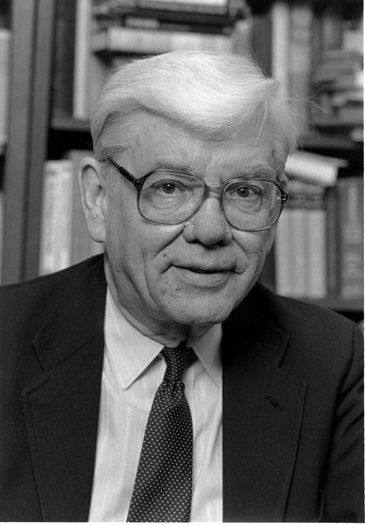The Vindication of Tradition: 1983 Jefferson Lecture in the Humanities (1984), p. 65.
Alternate version" Tradition is the living faith of the dead; traditionalism is the dead faith of the living. Tradition lives in conversation with the past, while remembering where we are and when we are and that it is we who have to decide. Traditionalism supposes that nothing should ever be done for the first time, so all that is needed to solve any problem is to arrive at the supposedly unanimous testimony of this homogenized tradition.
in "Christianity as an enfolding circle," U.S. News & World Report (June 26, 1989), p. 57
Frases de Jaroslav Pelikan
Jaroslav Jan Pelikan fue un prominente estudioso de la historia del Cristianismo y de la historia intelectual de la Edad Media.
Pelikan nació en Akron, Ohio su padre era eslovaco y su madre serbia. Su familia era de ascendencia luterana, siendo su padre pastor de una iglesia y su abuelo paterno fue obispo de la Iglesia Eslovaca Luterana en Estados Unidos.
Pero a 8 años de su muerte en 1998 se convirtió del luteranismo y fue aceptado en la Iglesia ortodoxa de Estados Unidos.
Se educó en el Seminario Concordia en St. Louis antes de obtener su doctorado de la Universidad de Chicago en 1946.
Fue Profesor Sterling emérito de History en Yale University, donde había enseñando de 1962 a 1996.
Fue autor de más de 30 libros, entre ellos los cinco volúmenes de The Christian Tradition: A History of the Development of Doctrine ,[1][2][3][4][5] y What Has Athens to Do With Jerusalem? “Timaeus” and “Genesis” in Counterpoint .[6]
Pronunció las Gifford lectures en 1992-93, en la Universidad de Aberdeen, publicadas con el título Christianity and Classical Culture.[7][8]
En 2004 recibió el premio John W. Kluge[9] por sus logros en las ciencias humanas, el dinero del premio fue donado al Seminario Teológico Ortodoxo San Vladimir.
Wikipedia
